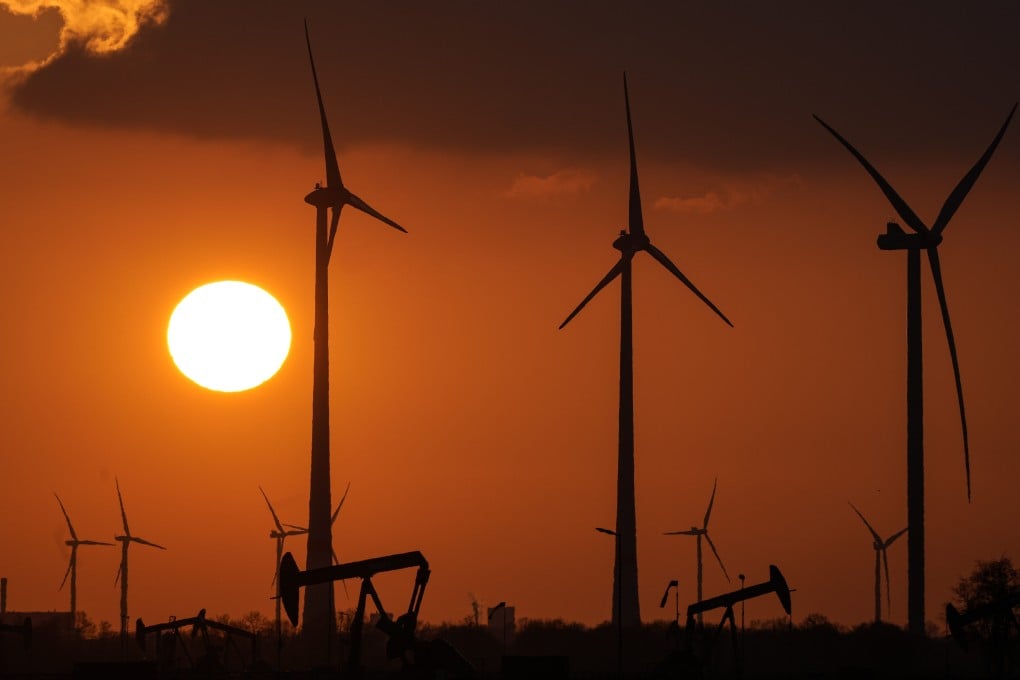Climate change: Greenhouse gas emissions must peak by 2025, deep cuts needed by end of decade to avoid catastrophic impact, says UN panel
- Even if 2 degrees of warming is to be achieved, reaching peak emissions by 2025, reducing them by a quarter by 2030 and achieving net zero by 2070 will be necessary
- The use of solar and wind energy and batteries has surged since 2010, thanks to technology that reduced installation costs by up to 85 per cent

Greenhouse gas emissions must peak within a few years and countries must implement deep across-the-board cuts to achieve the goal of limiting global warming to 1.5 degrees Celsius to avoid catastrophic impact from climate change, according to scientists.
This means global emissions must peak before 2025 “at the latest”, reduce by 43 per cent by the end of the decade and reach net zero by the early 2050s, they said in the latest report by the United Nations’ Intergovernmental Panel on Climate Change released on Monday.
Even if a less ambitious 2 degrees of warming is to be achieved, reaching a peak in emissions by 2025, reducing them by a quarter by 2030 and reaching net zero by 2070 will be necessary, the scientists said. Human activities have already caused the planet’s average temperature to rise by 1.1 degrees since 1850.
“It’s now or never, if we want to limit global warming to 1.5 degrees,” IPCC Working Group III co-chair Jim Skea said in a statement. “Without immediate and deep emissions reductions across all sectors, it will be impossible.”
Average annual global greenhouse gas emissions have reached their highest levels between 2010 to 2019, even though the rate of growth has slowed.
Climate change impacts, including more frequent heatwaves, droughts, higher sea levels, and floods from extreme rainstorms and more devastating tropical storms, will worsen in coming decades, the IPCC warned.
“We need to get on with this now … if there is no advance in the kind of pledges that countries are making before we get to COP27 [global climate talks] in Egypt at the end of this year, we may well have to conclude that indeed 1.5 degrees has gone,” Skea told reporters.
However, there is increasing evidence that immediate and efficient climate actions can help mitigate global warming, the scientists said in the report by 278 authors from 65 nations.